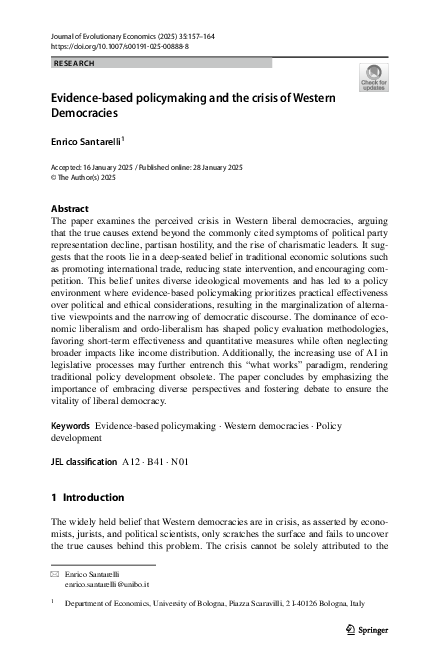Evidence-based policymaking and the crisis of Western Democracies

Journal of Evolutionary Economics
2025
35
1
157-164
democracy ; political leadership ; economic policy
Politics
https://doi.org/10.1007/s00191-025-00888-8
English
Bibliogr.
"The paper examines the perceived crisis in Western liberal democracies, arguing that the true causes extend beyond the commonly cited symptoms of political party representation decline, partisan hostility, and the rise of charismatic leaders. It suggests that the roots lie in a deep-seated belief in traditional economic solutions such as promoting international trade, reducing state intervention, and encouraging competition. This belief unites diverse ideological movements and has led to a policy environment where evidence-based policymaking prioritizes practical effectiveness over political and ethical considerations, resulting in the marginalization of alternative viewpoints and the narrowing of democratic discourse. The dominance of economic liberalism and ordo-liberalism has shaped policy evaluation methodologies, favoring short-term effectiveness and quantitative measures while often neglecting broader impacts like income distribution. Additionally, the increasing use of AI in legislative processes may further entrench this “what works” paradigm, rendering traditional policy development obsolete. The paper concludes by emphasizing the importance of embracing diverse perspectives and fostering debate to ensure the vitality of liberal democracy."
Digital
The ETUI is co-funded by the European Union. Views and opinions expressed are however those of the author(s) only and do not necessarily reflect those of the European Union or the ETUI.